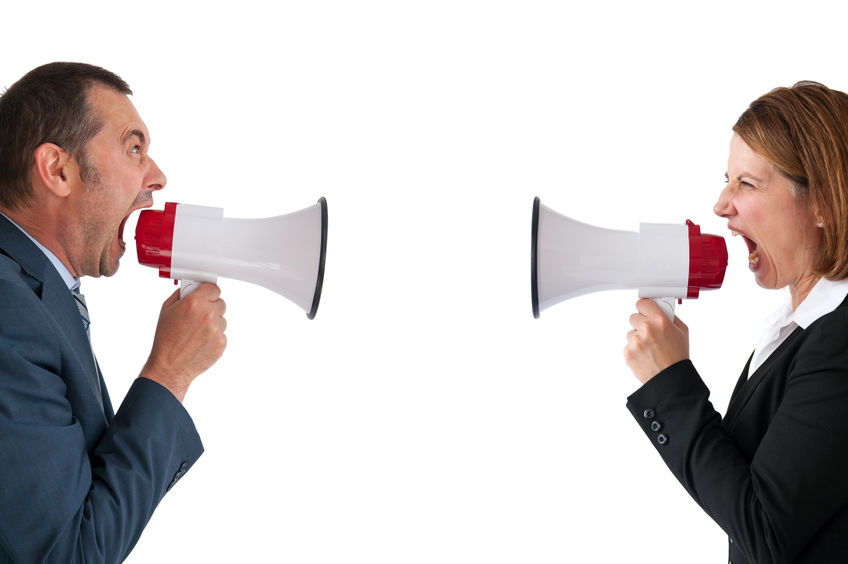
by Dan | Oct 9, 2019 | Uncategorized
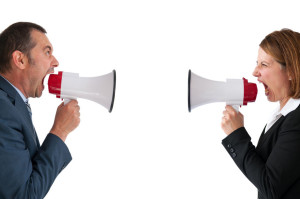 Inspired by this year’s symposium’s theme — Polarization and the Public Square — as well as the fact that Thanksgiving family dinners are just around the corner, this month’s post is centered on civil dialogue. It’s about the notion of giving family members and friends a time and place to vocalize their viewpoints without silencing or suppressing your own, potentially conflicting viewpoints.
Inspired by this year’s symposium’s theme — Polarization and the Public Square — as well as the fact that Thanksgiving family dinners are just around the corner, this month’s post is centered on civil dialogue. It’s about the notion of giving family members and friends a time and place to vocalize their viewpoints without silencing or suppressing your own, potentially conflicting viewpoints.
The U.S. has been struggling with political polarization since its founding in the 1700s, but the 2016 Presidential Election was arguably a turning point toward deeper political division, this time within social groups as opposed to groups of people with similar political affiliations in opposition to each other.
Previously, political polarization was largely a macro concept, occurring in wider society and in mass media. Nowadays, political polarization shows up in our social media newsfeeds, family dining rooms and workplaces. So how can you articulate your perspective without clashing with someone else who disagrees? Alternatively, how can you engage in mindful listening practices when someone is saying something you completely disagree with?
To help you navigate political polarization in intimate social settings among friends, family or coworkers, here are three productive strategies for maintaining social relationships without smothering your own political beliefs in the process:
Genuinely Listen to Them
A lot of us claim that we listen to other people; but are you genuinely listening for the sake of understanding what they’re trying to say or are you listening while primarily waiting for an opportunity to step in with your counterarguments?
People can generally sense when their audience isn’t interested in what they have to say and/or the person listening is just waiting for their chance to jump in with new refutations rather than acknowledging and engaging with what they’re actually saying. To avoid contributing to perceptions that you’re not genuinely listening to someone, set aside your arguments for a few moments and focus 100 percent on what they’re saying.
You may disagree and want to argue right off the bat, but fight the urge if you ever want to understand where they’re coming from.
Agree to Disagree
Once you’ve listened to someone’s arguments and opinions, then what? In an era of deep political polarization like the one we’re currently in, it’s unlikely that either party will have a transformative, viewpoint-changing moment in the span of a single conversation.
With this in mind, try to approach conversations with family, friends and coworkers as a learning opportunity instead of a debate. If you go into a discussion with clash and a right/wrong mentality, then it’ll be a self-fulfilling prophecy and neither side will be better off after the conversation concludes.
Instead, understand that you’ll likely end up having to “agree to disagree” and focus on the respectful exchange of information as opposed to trying to “win” arguments (which will likely create more conflict than it resolves).
Focus on Commonalities
Finally, focus on beliefs you and the other person have in common. Perhaps you have radically different beliefs about the separation between church and state, but you can still agree on middle-of-the-aisle things relating to the economy or education policy.
Rather than seeking out fights with people with whom you know you’ll clash, engage in conversations when you can highlight shared beliefs, respectfully agree to disagree when beliefs diverge, and genuinely listen to the other person instead of listening just for the sake of building new arguments.
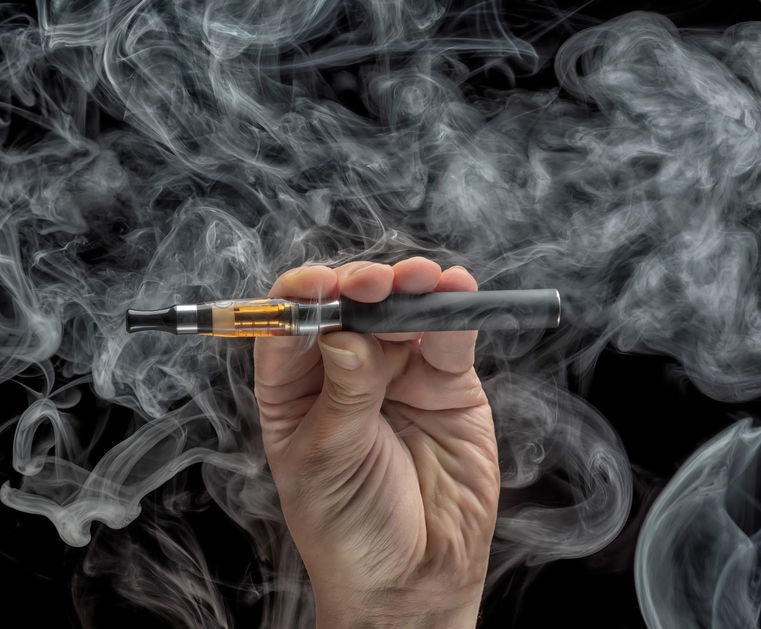
by Dan | Sep 25, 2019 | Uncategorized
 Recently, the FDA proposed new, more graphic warning labels for cigarette boxes. The last major change to warning labels for tobacco products occurred 35 years ago and the new labels would take up half the cigarette box to warn potential users of the dangers of smoking, such as lung cancer, heart disease, impotence, and eyesight problems, to name a few.
Recently, the FDA proposed new, more graphic warning labels for cigarette boxes. The last major change to warning labels for tobacco products occurred 35 years ago and the new labels would take up half the cigarette box to warn potential users of the dangers of smoking, such as lung cancer, heart disease, impotence, and eyesight problems, to name a few.
As expected, tobacco companies are not happy with the latest FDA proposal. The last time the FDA tried changing warning labels to include photos of cadavers and diseased lungs in 2012, the industry fought back in court and won on the basis of free speech.
But do warning labels and restrictive advertising guidelines predicated on public health actually violate these companies’ First Amendment rights? Let’s explore this issue further:
Tobacco Industry vs. the FDA
There has always existed a contentious relationship between the FDA and tobacco industry, whether that involved advertising guidelines potentially infringing on rights related to commercial speech or health claims of new tobacco products like e-cigarettes and vape juice. Throughout the past few decades, the federal government and several state governments have filed lawsuits against cigarette manufacturers on the basis of false advertising claims (e.g., wealth, fame, power symbols attached to tobacco mascots) and targeting youth (such as the ongoing Juul scandal).
Advertising is inherently intertwined with the First Amendment as a form of commercial speech, and warning labels intended to deter people from smoking can be bad for business. While adults should arguably be free to make their own life choices with what they do or do not consume, the inception and expansion of digital advertising has considerably complicated matters for both tobacco companies and the FDA.
Tobacco Companies Lobbying Against New Labels
Tobacco companies are back in court for the latest battle over warning labels on their products. For instance, the manufacturer of Camel and Newport cigarettes says it supports public awareness campaigns, but it claims that “the manner in which those messages are delivered to the public cannot run afoul of the First Amendment.”
Some legal analysts have argued in favor of banning tobacco advertising altogether, but this could lead to a slippery slope scenario in which many commercial products or services deemed unfavorable by a majority of the public could be shut out as well. The latest legal battle between the FDA and tobacco companies likely won’t be resolved for many months or years, but in the meantime: what do you think about the relationship between commercial free speech rights and public health? How can the government balance the autonomy of adults to make their own consumption choices without ignoring the potential benefits of deterring the public from health-harming, addictive habits like smoking?
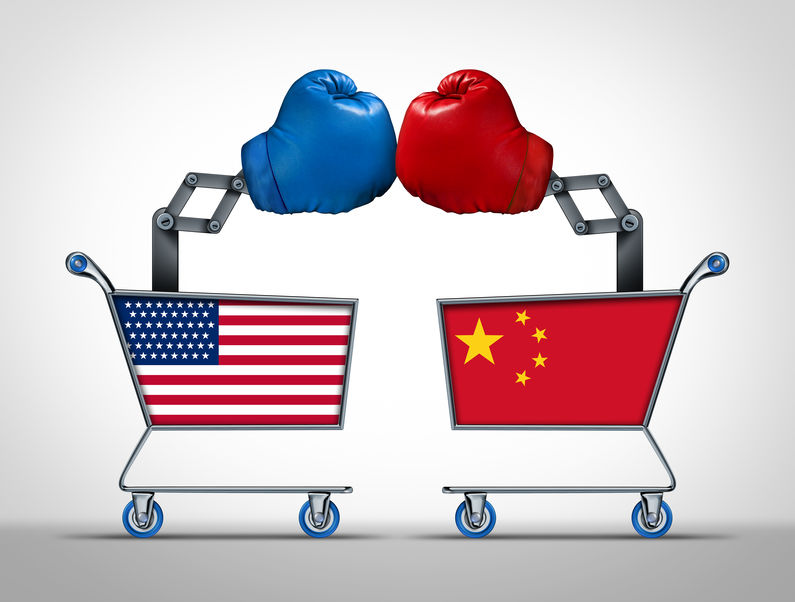
by Dan | Sep 11, 2019 | Uncategorized
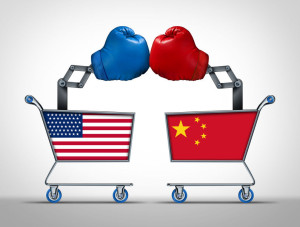 China is on many of our minds these days, with the rollercoaster-like trade war between China and the United States and the unrest in Hong Kong changing on a near-daily basis. As Americans, we’re fortunate to have freedom of speech and other essential liberties guaranteed by our nation’s foundational documents, but Chinese citizens are not as fortunate, as demonstrated by the incredibly restrictive censorship policies enforced by the Chinese Communist Party (CCP). China may be all the way across the Pacific Ocean, but its online censorship policies have numerous implications for Chinese and non-Chinese citizens alike. Let’s explore some of the specific policies and trends to get a better idea of what China’s doing to restrict freedom of expression in digital spaces both within and beyond China’s borders:
China is on many of our minds these days, with the rollercoaster-like trade war between China and the United States and the unrest in Hong Kong changing on a near-daily basis. As Americans, we’re fortunate to have freedom of speech and other essential liberties guaranteed by our nation’s foundational documents, but Chinese citizens are not as fortunate, as demonstrated by the incredibly restrictive censorship policies enforced by the Chinese Communist Party (CCP). China may be all the way across the Pacific Ocean, but its online censorship policies have numerous implications for Chinese and non-Chinese citizens alike. Let’s explore some of the specific policies and trends to get a better idea of what China’s doing to restrict freedom of expression in digital spaces both within and beyond China’s borders:
1. You Can’t Access Social Media in China Without a VPN
Many Western social media sites like Twitter, Facebook, Instagram and Youtube are almost completely inaccessible within China unless you use a virtual private network (VPN). China refers to its online censorship policies as the “Golden Shield” but critics alternatively call it the “Great Firewall of China” to highlight just how much the free flow of information is negatively affected. China is blocking websites that exist primarily to encourage users to exchange ideas and freely comment on anything from community events to politics. China also blocks many websites with content deemed inhospitable or downright threatening to the CCP, such as Amnesty International and several university websites (the latter of which makes it difficult for international students to remain enrolled in their distance learning programs).
2. The CCP Advertises on Social Media
Ironically, China Central Television (CCTV) — a prominent state-controlled media outlet in China — has been sponsoring ads on sites like Youtube to presumably mitigate negative international perceptions of the CCP. China’s government relies heavily on propaganda to not only control the flow of knowledge and information within their own country, but also to restrict the outflow of unfavorable news to other countries.
Furthermore, Google and Facebook recently began cracking down on CCP-sponsored content in the wake of the Hong Kong protests and tremendous amounts of propagandistic disinformation coming from CCP supporters and possibly the Chinese government itself.
3. Criticizing China Can Result in Jail Time
In 2018, an 80-something Chinese dissident vlogger was arrested for speaking out against the government’s policies in an interview with Voice of America. Before his microphone was cut by the police arresting him, Sun Wenguang said, “I am entitled to freedom of speech.”
This is just one of countless examples of anti-government dissidents being arrested and sentenced (some for 12+ years) for simply speaking out against policies they disagree with in China. Without protections similar to the U.S.’s First Amendment, Chinese citizens are routinely denied the right to freedom of expression by their own government, especially in online spaces.
4. #MeToo Was Blocked in China – So Activists Found an Alternative
A final example of Chinese online censorship can be seen through the #MeToo movement. When the CCP prohibited the use of #MeToo (in English and Chinese), clever-thinking activists switched to using rice and bunny emojis because the Chinese pronunciation of rice (“mi”) and bunny (“tu”) sound similar to #MeToo. There doesn’t appear to be an end in sight to China’s oppressive censorship policies, especially now that the CCP and its supporters are expanding censorship efforts across the globe. It serves as a stark reminder of the necessity of permanently protecting citizens’ freedom of speech here in the United States, so no politician or party can ever trample on these fundamental liberties in the future.
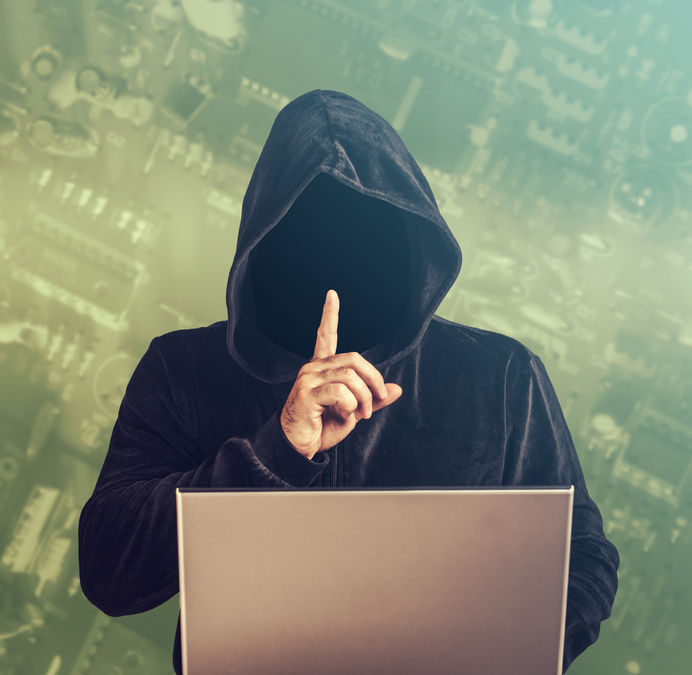
by Dan | Aug 28, 2019 | Uncategorized
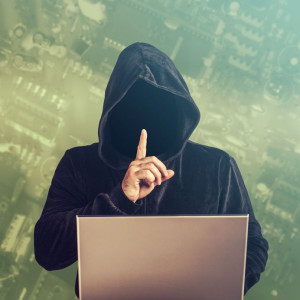 We all know the First Amendment protects freedom of speech, but in an era when people can post online under a pseudonym or without identifying themselves by a name at all — real or fake — the question arises: does the First Amendment also protect speech published or articulated by someone whose identity is unknown?
We all know the First Amendment protects freedom of speech, but in an era when people can post online under a pseudonym or without identifying themselves by a name at all — real or fake — the question arises: does the First Amendment also protect speech published or articulated by someone whose identity is unknown?
Unfortunately, there is always a possibility that someone’s online account — social media, blogs, forums, etc. — can be hacked or connected to their real life identity in a data breach, due to the nature of website registrations requiring a person’s name and email address to create the account in the first place.
Although there are always technology-related risks when it comes to online privacy, what about the legal risks? Are anonymous commenters protected against legal retribution if someone or some organization wants to sue them for what they published online? Should anonymous commenters — or the platform on which they posted the controversial content — be forced to reveal their identity if a legal concern arises?
There have been countless uses of pseudonyms connected to the issue of freedom of speech throughout American history: Ben Franklin’s “Silence Dogood,” Alexander Hamilton’s “Phocion,” Thomas Jefferson’s “correspondent from Virginia” and many others.
But the proliferation of web technologies and electronic communication has made it easier than ever for people to conceal their identities while publishing content, which brings us back to the original question: should the First Amendment apply similarly to speech articulated under a pseudonym or completely anonymously? Let’s unpack what we currently understand about the interplay between the First Amendment and anonymous speech:
McIntyre v. Ohio Elections Commission
In this 1995 Supreme Court decision, the majority wrote: “Anonymity is a shield from the tyranny of the majority….It thus exemplifies the purpose behind the Bill of Rights and of the First Amendment in particular: to protect unpopular individuals from retaliation…at the hand of an intolerant society.”
In other words, SCOTUS found that anonymity ought to be protected when it comes to freedom of speech, whether it’s written expression, public speech or online speech. In the 2017 case of Signature Management Team, LLC v. John Doe, the U.S. Court of Appeals for the Sixth Circuit found anonymous speakers/commenters can maintain their anonymity even if they lose a legal case against them, due to the likelihood of harm resulting from such revelations.
A more recent district court case involving a non-American Reddit commenter and Jehovah’s Witnesses went a step further by not only protecting individuals’ rights to free, anonymous speech but also protecting freedom of speech for an Internet user not living in the United States.
When is Anonymous Speech Not Protected?
According to Digital Media Law Project, “those harmed by unlawful anonymous speech — whether by defamation, misappropriation of trade secrets, or whatever else — also have a right to seek compensation for their injury.” This means that anonymous commenters are not always 100% protected — if the speech involves illegal actions and/or harmful consequences, there’s a risk the anonymous individual’s identity could be unmasked.

by Dan | Aug 14, 2019 | Uncategorized
 Many cities across the country have been restricting the practice of panhandling — begging or requesting money in public places. But are these laws potentially infringing on the panhandlers’ First Amendment right to freedom of speech? This question becomes more complicated when you take into consideration the differences between verbally asking strangers for money and the act of simply holding a sign that asks for money.
Many cities across the country have been restricting the practice of panhandling — begging or requesting money in public places. But are these laws potentially infringing on the panhandlers’ First Amendment right to freedom of speech? This question becomes more complicated when you take into consideration the differences between verbally asking strangers for money and the act of simply holding a sign that asks for money.
While many people do not appreciate being approached by panhandlers, the fact remains that they have a right to be there and exercise their free speech rights in asking for money, work opportunities, food or other items. But to what extent is panhandling protected by the First Amendment? Let’s explore this more in-depth:
Village of Schaumburg v. Citizens for a Better Environment
In this 1980 Supreme Court case, the Citizens for a Better Environment nonprofit organization sued the village of Schaumburg for what it alleged was an unconstitutional ordinance against door-to-door solicitation by charities that did not use at least 75 percent of their funds for “charitable purposes” (excluding administration costs such as nonprofit employees’ salaries).
When the case reached the Supreme Court, it resulted in a 8-1 decision in favor of the nonprofit. The majority opinion included important arguments that later became integral to protecting panhandlers’ rights, including statements such as “solicitation for money is closely intertwined with speech” and “solicitation to pay or contribute money is protected under the First Amendment.”
Passive vs. Aggressive Panhandling
There have been multiple legal battles involving cities and solicitation restrictions since Citizens for a Better Environment, many of which have ruled in favor of panhandlers on the basis of free speech. Other decisions cite the Fourteenth Amendment alongside the First Amendment.
One common area of debate when it comes to anti-solicitation ordinances is the passivity or aggressiveness of the panhandling. For example, is it someone standing on the side of a road, holding a sign that asks for money? Or is it someone actively (and perhaps menacingly or threateningly) pursuing citizens and harassing them for money? There’s a big difference between the two main forms of panhandling, the latter of which may be considered robbery or public nuisance/disturbance and thus, not protected by the First Amendment.
Common Ordinance Restrictions
According to the First Amendment Encyclopedia published by Middle Tennessee State University, city ordinances regulating panhandling and other forms of solicitation in public spaces must follow these guidelines:
- be neutral in content;
- be narrowly tailored;
- leave open ample alternative channels of communication;
- serve a significant government interest that is pressing and legitimate.
Consequently, many municipalities are constantly updating their solicitation ordinances to avoid trampeling on panhandlers’ First Amendment rights while simultaneously balancing the public’s desire for minimal nuisances.

by Dan | Jul 24, 2019 | Uncategorized
 As we increasingly move toward a cash-less society with the help of instantaneous payment apps like Venmo, Google Pay, Apply Pay, and credit card-specific smartphone payment apps, we’re at risk of hindering our democracy. How so?
As we increasingly move toward a cash-less society with the help of instantaneous payment apps like Venmo, Google Pay, Apply Pay, and credit card-specific smartphone payment apps, we’re at risk of hindering our democracy. How so?
Perhaps this isn’t a major concern in the United States yet, but the protests in Hong Kong have brought to light a concerning issue in regards to personal privacy and cash-less payments. In Hong Kong, there’s something called an “Octopus Card,” which is distributed by a financial company owned primarily by the government of Hong Kong. Most residents of Hong Kong rely on this card to pay for everything from groceries to clothing, but in wake of the protests, people are worried that the government could be tracking their location and financial activity with the help of the Octopus Card.
Although the U.S. government isn’t heavily involved in the cash-less payment markets (yet?), it’s nevertheless concerning how much of a privacy violation these smartphone apps could be. After all, a privacy researcher in Berlin managed to analyze over 18 million Venmo users’ information related to more than 208 million public transactions because the users never changed the app’s default settings to private. This means that many users could be inadvertently sharing their purchasing habits, location, lifestyle choices and other personal information with literally anyone who can access and browse through the app.
As we strive to improve consumer convenience with cash-less payments, individuals’ privacy, freedom of speech and even freedom of assembly could be at stake. Let’s examine this issue further:
Surveilling Your Financial Activity
As an article in The Atlantic points out, “In a cashless society, the cash has been converted into numbers, into signals, into electronic currents. In short: Information replaces cash….and wherever information gathers and flows, two predators follow closely behind it: censorship and surveillance.”
Another article from Ars Technica in 2018 similarly argues that Venmo (and other cash-less payment systems like PayPal) are frequently criticized by consumer groups and even targeted by the Federal Trade Commission for consumer privacy violations. Since the default setting for many apps’ transactions is “public,” users could be unwittingly sharing their personal financial activities with anyone who wants to view them. This, in turn, could lead to serious issues related to surveillance if the government or other entities can see how much your spending on what at any given point (your entire payment history is also public on the default setting).
Location Tracking
Another concern for individual privacy rights advocates is the potential for governments to track where consumers are spending their money. Some payment apps keep location records on their users (how detailed and how long that information is kept remains unknown).
As we can see from peoples’ personal experiences with civil asset forfeiture laws, there’s tremendous potential for abusing individuals’ privacy, freedom of expression and freedom of assembly if just about anyone can view their financial and location records at any time. As more and more consumers rely on cash-less payment apps, we need to do more as a society to ensure their rights will not be violated in the midst of everyday financial transactions.

 Inspired by this year’s symposium’s theme — Polarization and the Public Square — as well as the fact that Thanksgiving family dinners are just around the corner, this month’s post is centered on civil dialogue. It’s about the notion of giving family members and friends a time and place to vocalize their viewpoints without silencing or suppressing your own, potentially conflicting viewpoints.
Inspired by this year’s symposium’s theme — Polarization and the Public Square — as well as the fact that Thanksgiving family dinners are just around the corner, this month’s post is centered on civil dialogue. It’s about the notion of giving family members and friends a time and place to vocalize their viewpoints without silencing or suppressing your own, potentially conflicting viewpoints.

 Recently, the FDA proposed new, more
Recently, the FDA proposed new, more 
 China is on many of our minds these days, with the rollercoaster-like trade war between China and the United States and the unrest in Hong Kong changing on a near-daily basis. As Americans, we’re fortunate to have freedom of speech and other essential liberties guaranteed by our nation’s foundational documents, but Chinese citizens are not as fortunate, as demonstrated by the incredibly restrictive censorship policies enforced by the Chinese Communist Party (CCP). China may be all the way across the Pacific Ocean, but its online censorship policies have numerous implications for Chinese and non-Chinese citizens alike. Let’s explore some of the specific policies and trends to get a better idea of what China’s doing to restrict freedom of expression in digital spaces both within and beyond China’s borders:
China is on many of our minds these days, with the rollercoaster-like trade war between China and the United States and the unrest in Hong Kong changing on a near-daily basis. As Americans, we’re fortunate to have freedom of speech and other essential liberties guaranteed by our nation’s foundational documents, but Chinese citizens are not as fortunate, as demonstrated by the incredibly restrictive censorship policies enforced by the Chinese Communist Party (CCP). China may be all the way across the Pacific Ocean, but its online censorship policies have numerous implications for Chinese and non-Chinese citizens alike. Let’s explore some of the specific policies and trends to get a better idea of what China’s doing to restrict freedom of expression in digital spaces both within and beyond China’s borders:
 We all know the First Amendment protects freedom of speech, but in an era when people can post online under a pseudonym or without identifying themselves by a name at all — real or fake — the question arises: does the First Amendment also protect speech published or articulated by someone whose identity is unknown?
We all know the First Amendment protects freedom of speech, but in an era when people can post online under a pseudonym or without identifying themselves by a name at all — real or fake — the question arises: does the First Amendment also protect speech published or articulated by someone whose identity is unknown?
 Many cities across the country have been restricting the practice of panhandling — begging or requesting money in public places. But are these laws potentially infringing on the panhandlers’ First Amendment right to freedom of speech? This question becomes more complicated when you take into consideration the differences between verbally asking strangers for money and the act of simply holding a sign that asks for money.
Many cities across the country have been restricting the practice of panhandling — begging or requesting money in public places. But are these laws potentially infringing on the panhandlers’ First Amendment right to freedom of speech? This question becomes more complicated when you take into consideration the differences between verbally asking strangers for money and the act of simply holding a sign that asks for money.
 As we increasingly move toward a cash-less society with the help of instantaneous payment apps like Venmo, Google Pay, Apply Pay, and credit card-specific smartphone payment apps, we’re at risk of hindering our democracy. How so?
As we increasingly move toward a cash-less society with the help of instantaneous payment apps like Venmo, Google Pay, Apply Pay, and credit card-specific smartphone payment apps, we’re at risk of hindering our democracy. How so?



